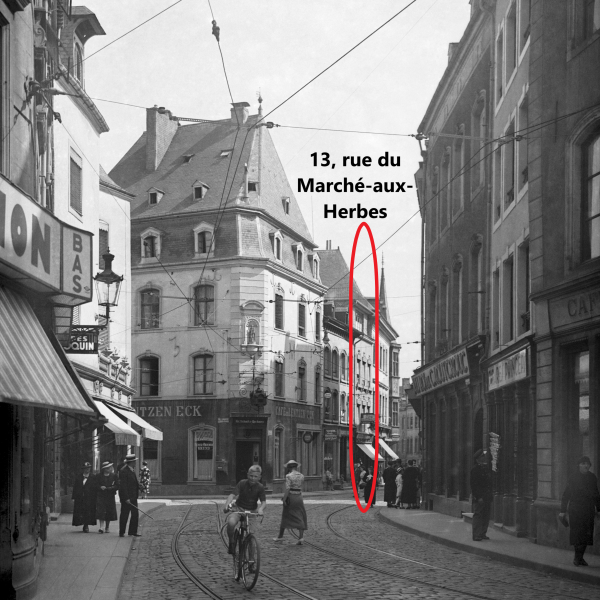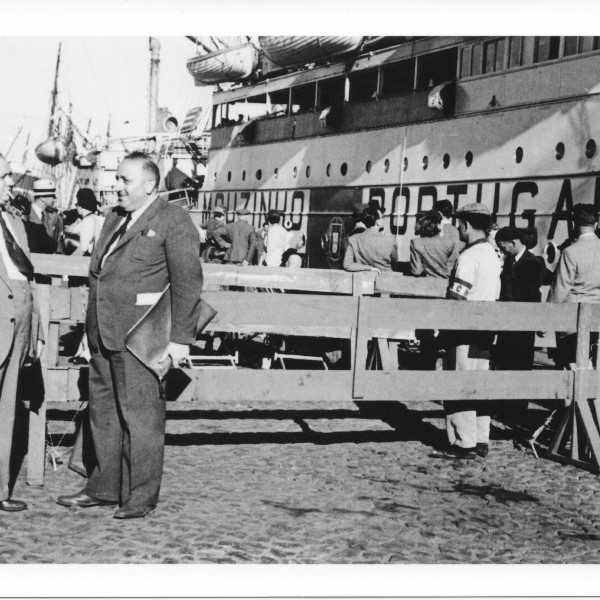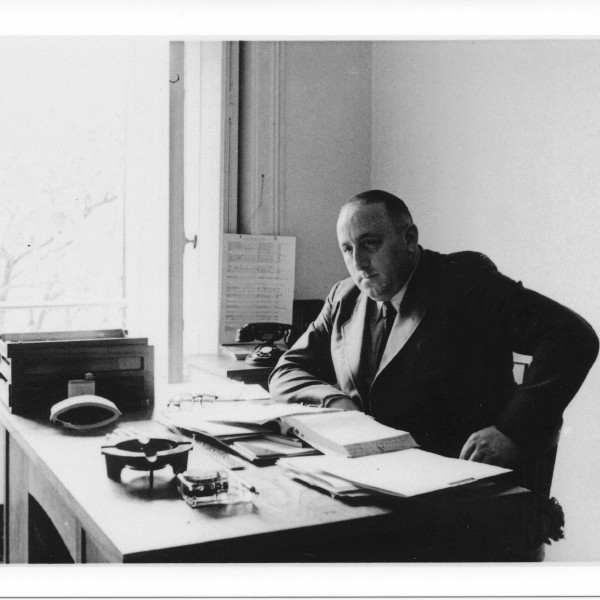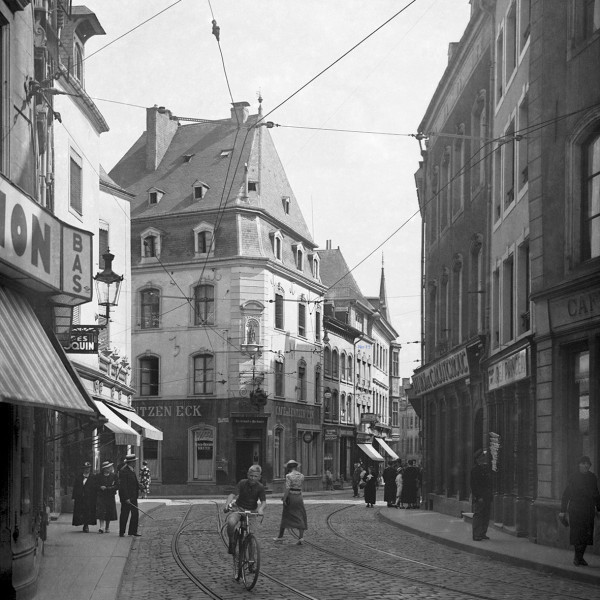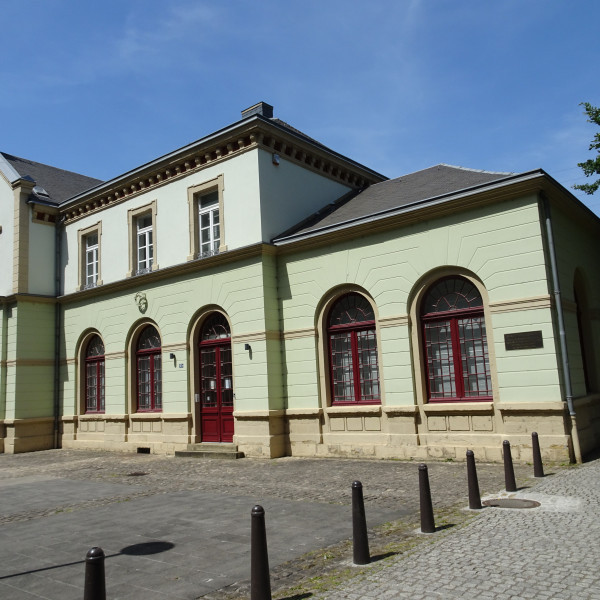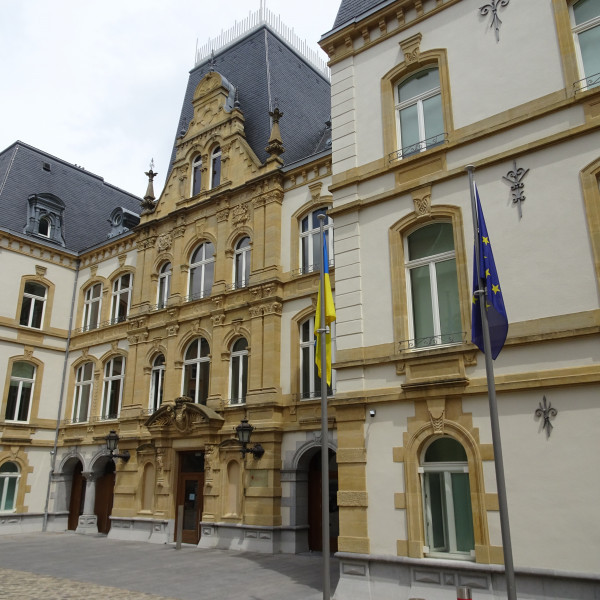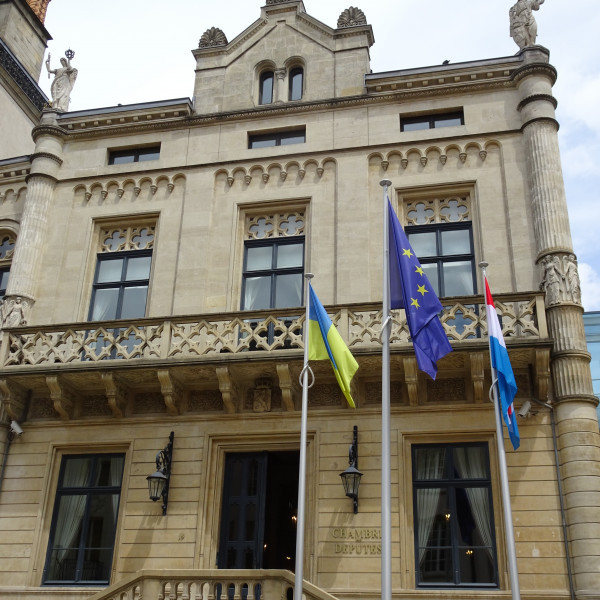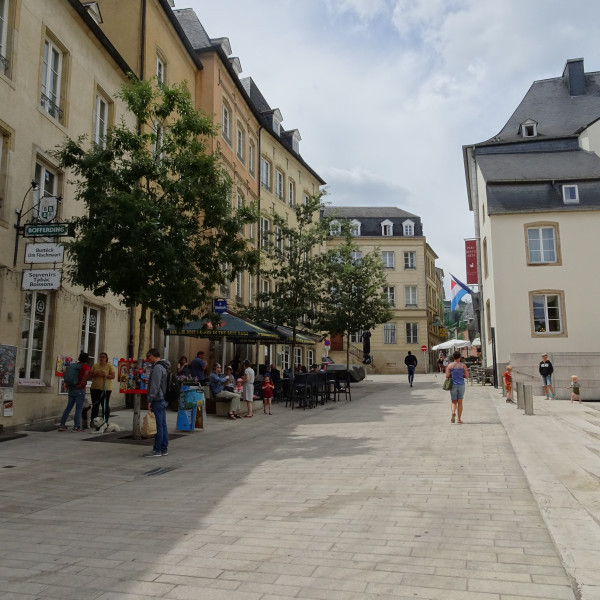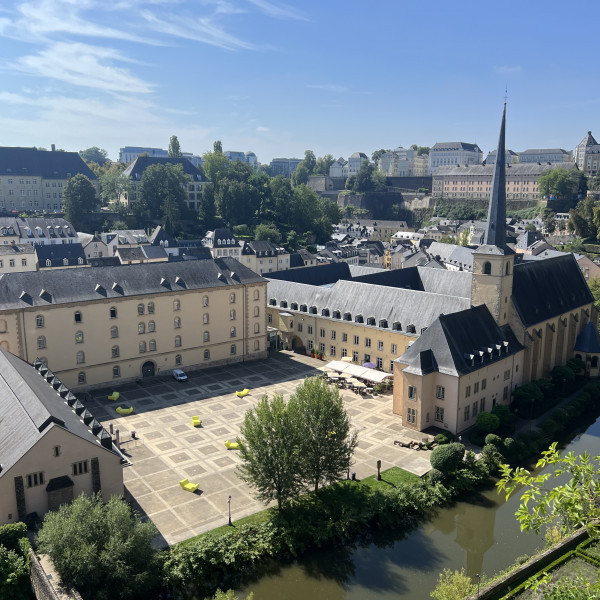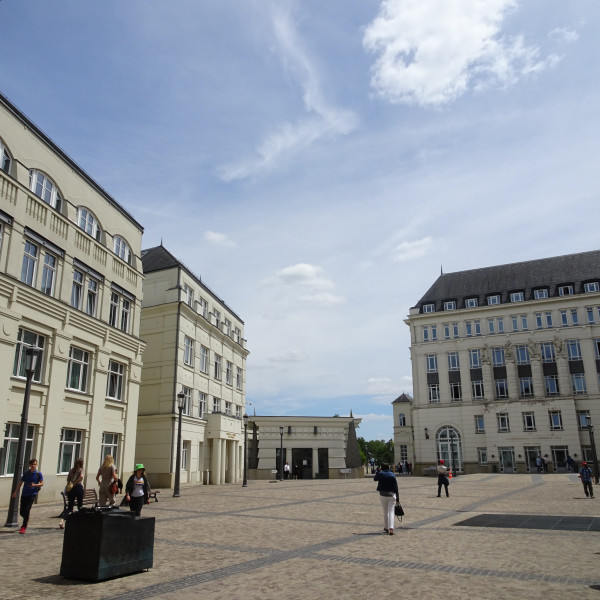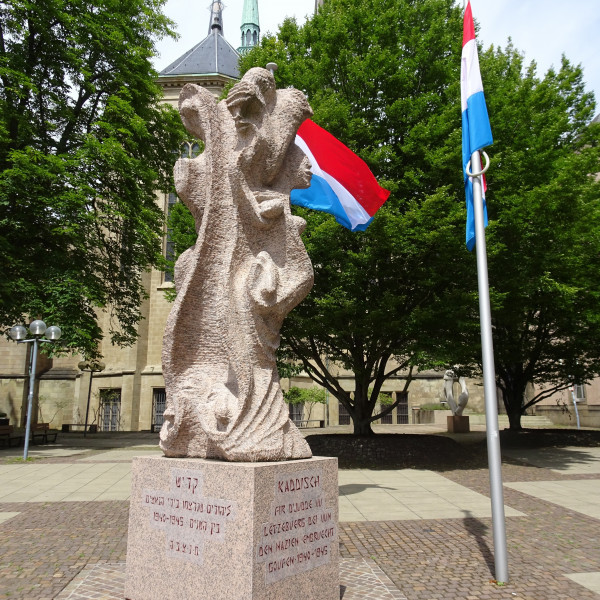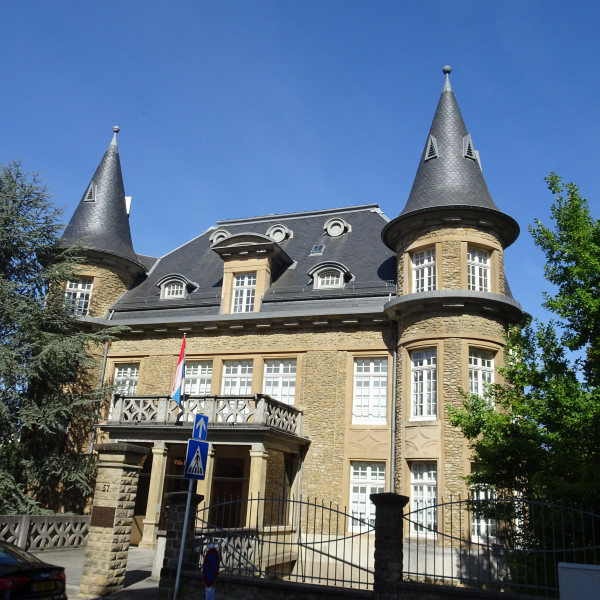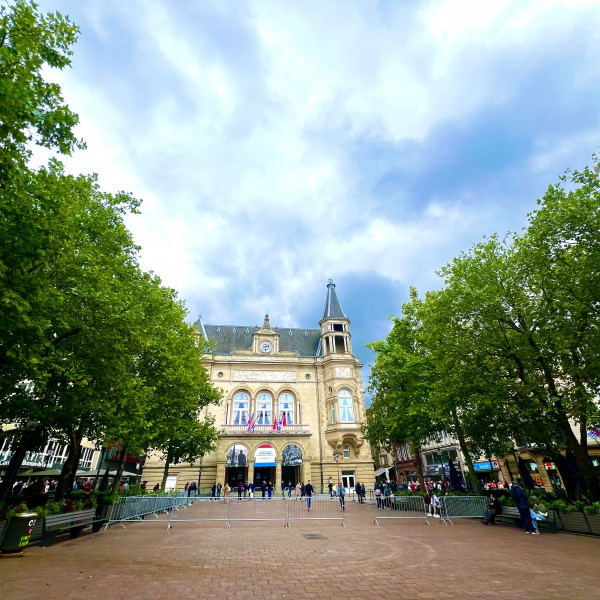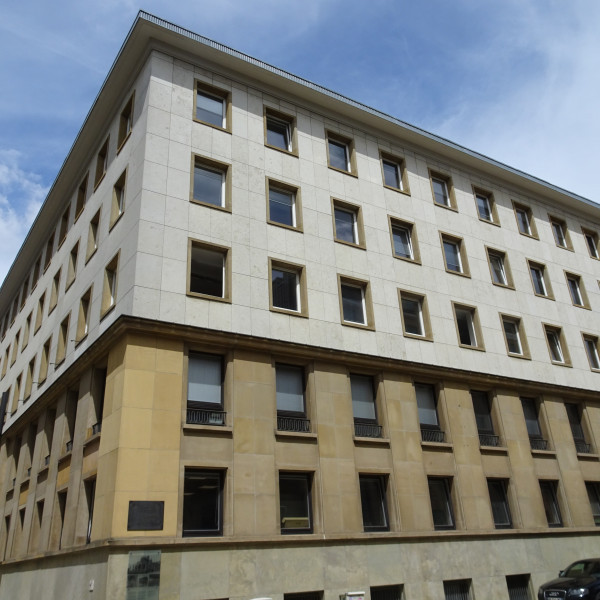
6. Albert Nussbaum: the Luxembourgish Emigration Helper
Albert Nussbaum was born on 4 February 1898 in Monneren, near Thionville. Shortly after his birth, the family moved to Differdange, a small town in the south of Luxembourg, where his father Gustave Nussbaum opened a textile shop. After his father passed away in 1929, the family moved to Luxembourg City, where Albert Nussbaum took over a second store called “Palais de l’Habillement” that his father had opened at 13 Krautmarkt Street (Rue du Marché-aux-Herbes).
In 1935, Albert Nussbaum acquired Luxembourgish citizenship. He also became involved in the Jewish consistory and took the presidency in the 1930s. In his capacity as president of the consistory and treasurer of the ESRA, the Jewish aid committee of the consistory, Nussbaum held active exchanges with the Luxembourg Administrative Commission, a body put in place after the German invasion to serve as an interlocutor between the Luxembourg State and the German occupying force during the first six months of the occupation. This commission helped Jews leave the country. Nussbaum became an invaluable emigration organiser for Jewish residents from Luxembourg.
From July 1940 onwards, the plan emerged to organise the Jewish emigration of those in possession of a visa to North or South America via Portugal. From August 1940, Nussbaum accompanied several emigration groups from Luxembourg to Portugal. In Lisbon, Nussbaum made contact with the Luxembourgish government-in-exile as well as the American Jewish Joint Distribution Committee - an aid organisation of US Jews - and HICEM, a Jewish aid organisation with offices in Lisbon from mid-1940, which helped European Jews to emigrate. He also contacted various embassies to obtain information about emigration possibilities to South America, the Dominican Republic, Africa and Palestine. Nussbaum was initially able to accompany the Jewish emigration convoys from Luxembourg to Lisbon. From the end of 1940, the situation for Nussbaum worsened and he was no longer able to return to Luxembourg for security reasons. He then continued his work from Lisbon until he himself finally had to emigrate overseas, first to Santo Domingo and then to the USA in May 1942. All in all, it was mainly thanks to his commitment and his efficient networking, as well as his relations with the Luxembourgish government-in-exile, that more than one thousand Jews were able to leave Luxembourg.

